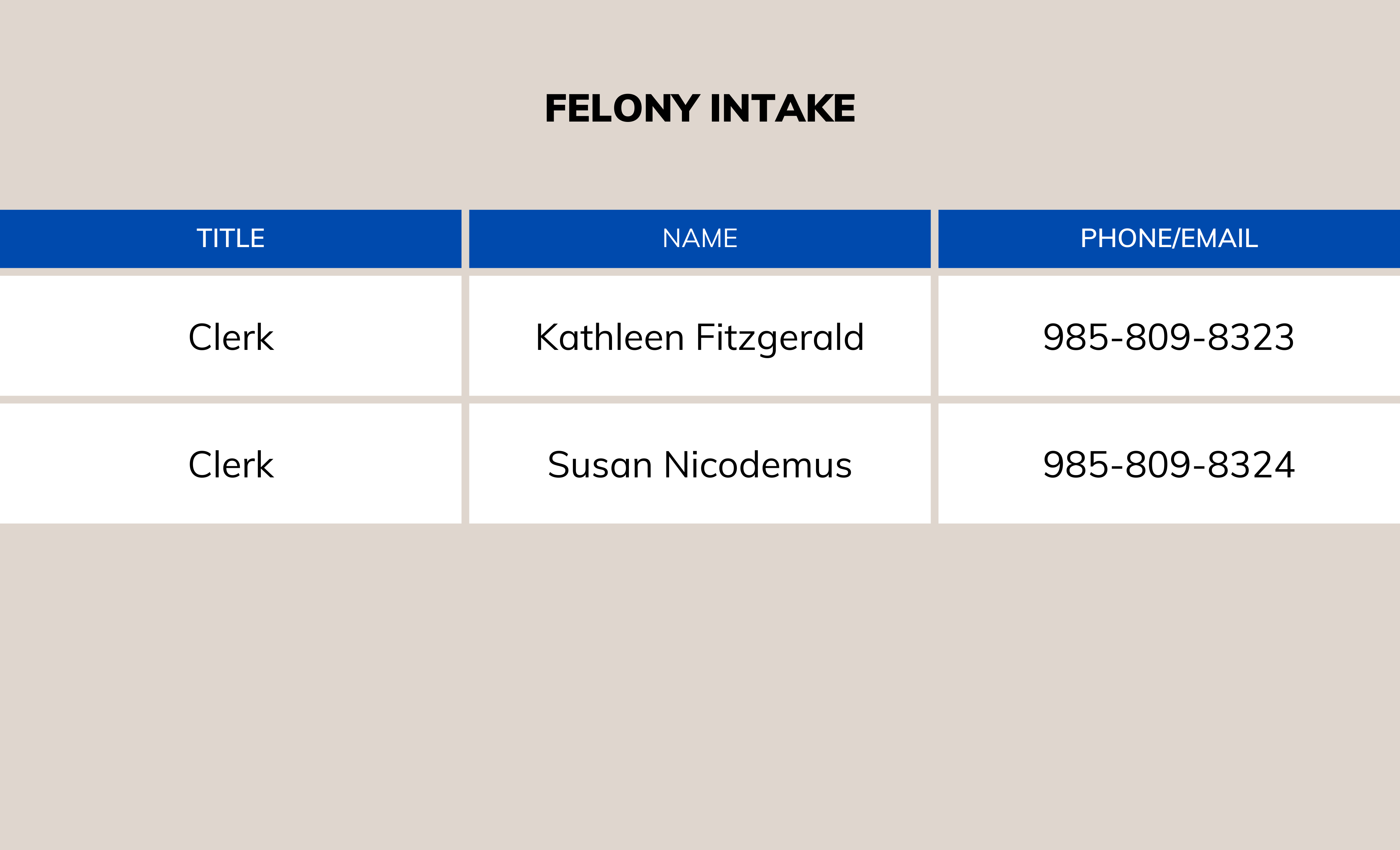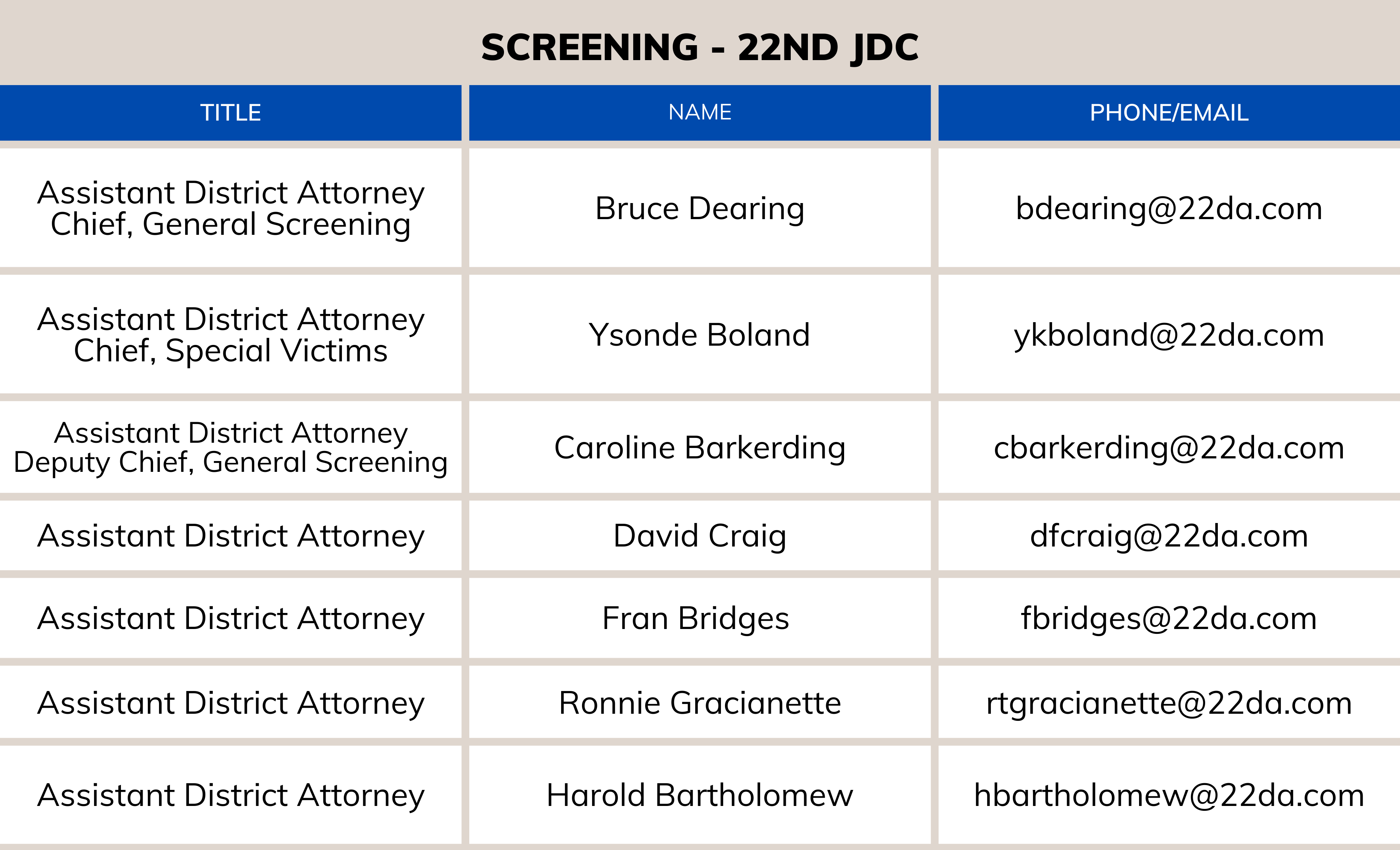The Screening Division is the first stop for cases in our office.
Each case is thoroughly reviewed by an assistant district attorney before a decision is made as to what charges, if any, should be filed against the defendant.
Screening
Overview
Screening is part of the process by which the District Attorney carries out the power and authority articulated in LSA Code Criminal Procedure Article 61 “the district attorney has entire charge and control of every criminal prosecution instituted or pending in his district, and determines whom, when and how he shall prosecute.” The elected District Attorney is held accountable to the community. In a DA’s office it is neither desirable nor acceptable to have a charging philosophy or standard dependent on individual attitudes. There must be consistency and even-handedness in the application of discretion in the decision to prosecute a person accused of a criminal offense.
The Process
Screening is a form of “Triage”. As assistant district attorney makes an initial assessment to determine whether there is sufficient evidence to support a prosecution. It is only through uniform application of charging criteria that the District Attorney ensures consistency and fairness in ou criminal justice system. It is the express philosophy of this office to hold accountable those who violate the law, but this office also has a responsibility to protect the innocent from wrongful accusations. This office frequently interacts with law enforcement. We have a common goal, but we must not relinquish our role of examining each case with a critical eye. Our office and the public expects law enforcement to have conducted a thorough investigation in each case submitted to our office. There must be sufficient proof for each and every element of the offense in order to warrant criminal prosecution. If the evidence does not establish a violation of the law, the case must be declined.
The screening division decides whether to accept what law enforcement has “booked”; accept what law enforcement has “booked” plus additional charges, accept something different than what law enforcement has “booked” or refuse all charges. Charges can be instituted by Bill of Information for offenses not punishable by death or life imprisonment. When an offense is punishable by life imprisonment or death, the charge must be brought by a Grand Jury via a Bill of Indictment. The contents of a Bill of Information or Bill of Indictment must be specific enough so that the accused is able to prepare for trial, can determine the relevancy and admissibility of evidence and the court can impose an appropriate sentence if the defendant is convicted.
Contact



